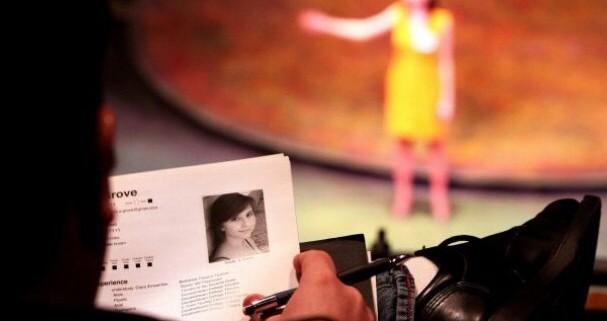The art of auditioning
I have been a professional singer for over twenty years, and one thing I and my many hundreds of operatic colleagues have observed is that one of the most tricky things we have to negotiate in our profession is:
Audition.
There are two main types of audition we do: one to get an agent, and one to get a job with an opera company.
In order to get an agent, you might start by writing round all the agents who have a great reputation for looking after their clients. But the only way you’ll get their interest is if you can invite them to a concert or show. And there’s your first problem: you don’t have any gigs in the diary to invite them to. It’s a Catch 22.
But for now, let’s say you have an agent, and they want you to go and do an audition for an opera house in, say, Germany. First, you have to stump up the cash to be able to travel to the designated city, usually arriving the night before, and staying in a hotel. These costs mount up extremely quickly, especially if you have to fly to these places. So we’re looking at a cost of £300-£400, just for one, speculative audition.
Ok then, so you’ve done your homework (or your agent has), and you know that this house is looking for a role that you know you can sing the tits off. You’ve spoken to the Royal Bank of Mum and Dad and borrowed the money for the trip, and you’ve arrived at the venue, whereupon you’re told whether or not you have access to a warm-up space (hint: try to warm up before you leave the hotel – you may get an angry knock at the door, but heck, you’re there to get a job!). And now you’re waiting outside the room, ready to show them what you’ve got.
You’re called in. Chances are you’re in a small room (“Why did I bring Wagner?!”), or perhaps a larger one, with a pile of chairs stacked up in the corner, and the odd bit of scenery plonked down. You try not to let your mind wander off, musing over what opera that bit of set might be for. No. Focus. Keep your eye on the prize.
You have already read up on how to greet the panel (usually just one, two, or three people), you’ve decided whether or not to shake hands, how formal to be, you’ve done your pre-audition breathing exercises to be as centred and calm as possible. You hand your music to the pianist, whose eyes open wide as he/she doesn’t recognise the pieces. You cross your fingers, and off you go…
Days later, you may get one of the following responses:
- The panel didn’t like you, and you never get to sing for them again.
- They liked you, but felt you need a year or two more experience before considering you again
- They liked you, but have nothing to offer you for the time being.
- They loved you, and think they might have something to offer you in three years’ time.
- They adored you, and were able to offer you a role (which then you have to decide fits both your voice-type and schedule).
These are all things a singer must consider when deciding whether or not it’s worth the money and time to do the audition in the first place.
And it’s no picnic for the panel either, who really want you to do well, but know that their very presence is unnerving for you. You also know that you perform much better when you’re actually just performing. If only you could show them what you can do on a proper stage, with an orchestra and other singers on stage, rather than standing in an empty room in uncomfortable shoes.
The whole concept of auditioning can be stress-inducing, nerve-wracking, jet-lagging, and bank-breaking. There MUST be a better way.
Answers on a postcard please. Or in the comments below.




It’s a shame that the “working session” seems to have disappeared. It seemed a really good way to give (and get?) a more accurate sense of who someone is as a singer and how easy they are to work with.
Reblogged this on Writing Jing.
This is 100% accurate. This year I have travelled to France twice to audition for chorus in two different opera houses. Total financial cost – £1000. Feedback – none. Disappointment and impact on morale – huge. But will I turn down the next audition – probably not. I am my own worst enemy.
I’ve discussed this with friends ad nauseam, and unfortunately the audition as we know (and dread!) it is probably the least worst option. I agree with James Harrison above that the working session is the most humane way to go about things (certainly my preferred option), but I suspect they’re a bit of a logistical nightmare and would mean fewer singers getting heard. I wish I knew what the answer was!